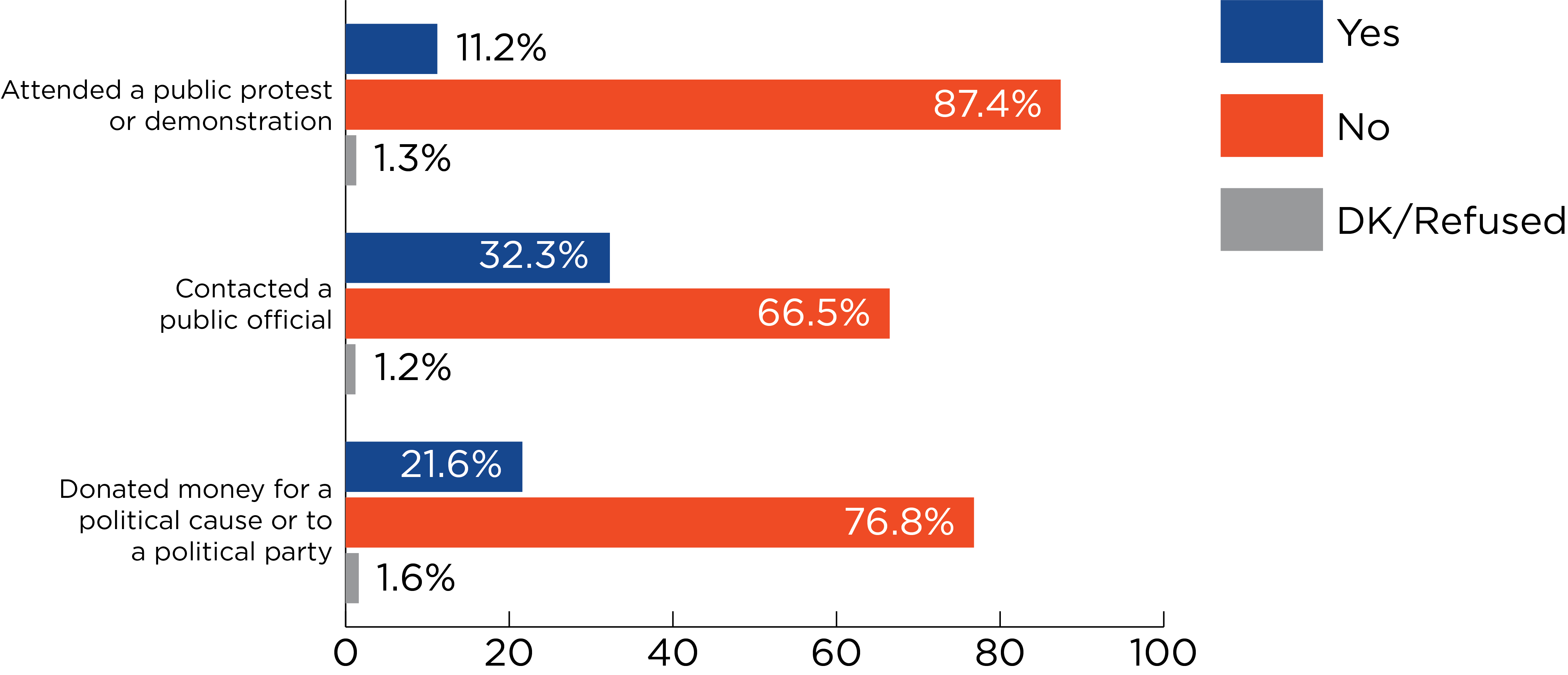With increased attention on law enforcement, we were interested in ascertaining what percentage of crimes police must solve in order for Idahoans to say they are doing a “good job.” This would allow researchers to identify if Idahoans had realistic expectations compared to national crime statistics.
When asked about violent crimes specifically – crimes that involve the use of force or the threat of force against the victim – most Idahoans (46%) said that police must solve 75% to 100% of violent crimes for them to say police are doing a “good job.” For comparison, the U.S. national rate of cleared violent crimes is 46%. Only 12% of Idahoans indicated they would consider that clearance rate “good” for violent crimes.
Looking at property crimes – crimes where a victim’s property is stolen or damaged, but which did not involve the use or threat of force against the victim – Idahoans are marginally more tolerant, with 41% indicating that police must solve 75% to 100% of property crimes for them to say they are doing a “good job.” The U.S. national rate of cleared property crimes is 17%. Only 5% of Idahoans indicated they would consider that a good clearance rate.
Together, these results suggest that the public may lack a proper frame of reference for what level of case clearance constitutes a “good job” in law enforcement, but are slightly more tolerant of property crimes being solved at a lower rate than violent crimes.
Political Engagement
We were interested in learning to what degree Idahoans have engaged politically, be it through attending protests or demonstrations, contacting public officials, or donating money to a political cause or campaign. Results suggest that political engagement among Idahoans is high, as 11% reported attending a public protest or demonstration within the past year (consistent with similar national figures) and 22% reported donating money to a political cause or party (eight points higher than national figures).

A 2018 Pew study of the U.S. found that only 23% of individuals had contacted an elected official in the last year. Our survey shows that nearly a third (32%) of Idahoans reported contacting a public official in the last year. While we can only speculate on the reason for this increase, one possible explanation is that COVID-19-related proposals, including possible mask mandates or vaccination requirements, may have prompted more Idahoans to voice their opinions to public officials via phone or letter in lieu of testifying in public. Without more information, it is difficult to conclusively say one way or the other.
Conclusion
This seventh edition of the Idaho Public Policy Survey has explored Idahoans’ attitudes on a variety of policy issues, both new and old. It reflects increasing tension throughout the state on matters related to growth and its impacts, housing, and the COVID-19 pandemic. It also serves as an indicator that Idahoans remain generally positive about the direction of the state, while remaining engaged politically.
As always, understanding the attitudes of Idahoans can help inform policymakers regarding the interests and concerns of their constituencies as they deliberate the issues of 2022 and beyond.